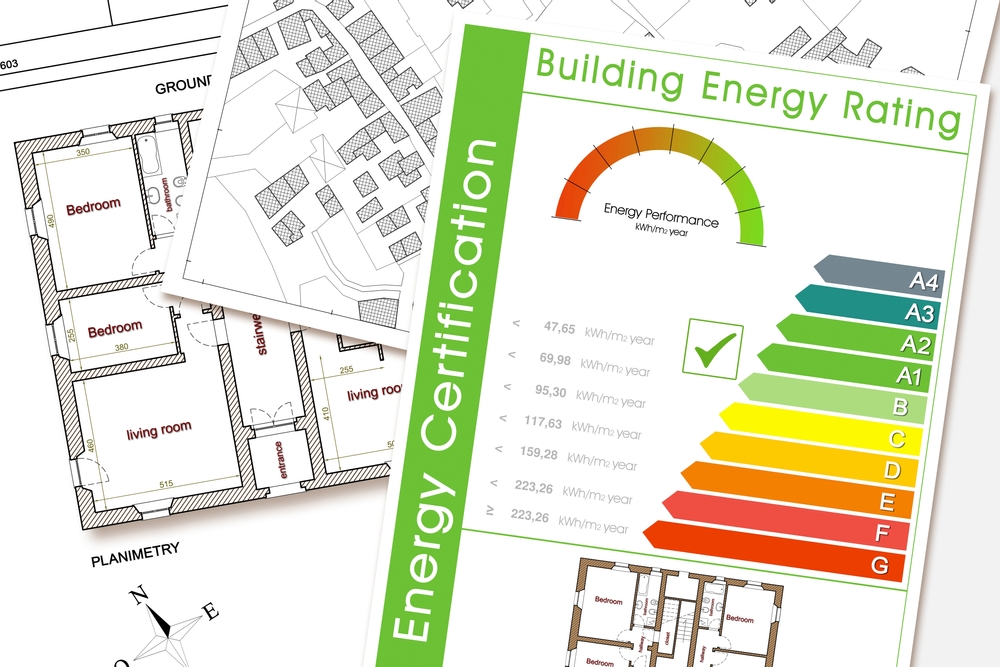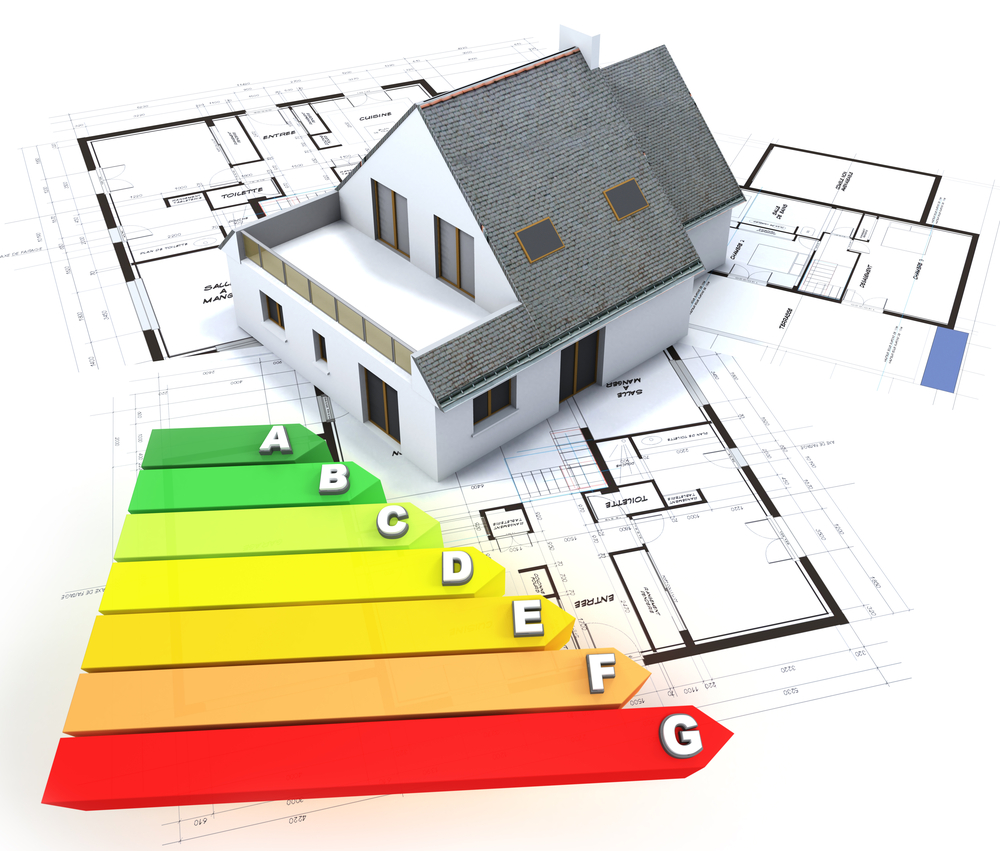SAP Assessments: How to get an EPC for a New Dwelling
SAP Calculations perform a key role in the design of new homes in the UK. To obtain an Energy Performance Certificate (EPC) for a new dwelling, contact us at Essential Green Skills. Our trained and accredited On Construction Domestic Energy Assessors (OCDEAs) will conduct the necessary assessments to produce an EPC, ensuring your building complies with regulations. Reach out to us to schedule your assessment and secure your EPC today.
Get an EPC
Building Regulations and SAP Calculations
SAP Calculations are essential for complying with UK Building Regulations and are mandatory for all new residential developments. Since 1995, every new home must meet the standards set under Part L of these regulations, making the SAP Rating a familiar requirement for most developers. However, first-time self-builders and new developers may find this a challenging part of the planning and building control process.
What Do SAP Calculations Do?
SAP Calculations serve three primary purposes:
-
Determine the SAP Rating
This rating assesses the energy-related running costs of a dwelling.
-
Demonstrate Compliance
They confirm that the building meets the requirements of Part L of the Building Regulations.
-
Produce an Energy Performance Certificate (EPC)
This certificate is necessary for the building to be legally marketed for sale or rent.
Additional Considerations:
- Conversions and Extensions: The rules for SAP Calculations slightly differ for building conversions or extensions.
- Regional Differences: Requirements in Scotland may vary from those in the rest of the UK.
Importance of Passing SAP Calculations
To comply with current building regulations, builders must achieve a 'pass' in their SAP Calculations.
Failure to do so means that building control will not approve the project, and the property cannot be legally let or sold. The calculations allow for the precise measurement of the impact of various construction types, heating systems, and technologies, ensuring these elements are effectively implemented on-site.
Before construction begins, an assessment must be conducted to ensure compliance with building regulations.
Upon completion, it is mandatory for all new dwellings to obtain an Energy Performance Certificate (EPC).

-
Engage Early in the Process
One key point, even more important than those above, is to engage early in the process. If we receive a set of plans halfway through a build, there’s not a lot we can do to change the energy performance of that building. This scenario often leads to poor practices and the installation of unsuitable, expensive technologies added in hindsight just to pass building regulations or meet a planning condition.
Avoid this by involving your SAP assessor as early as possible—preferably well before planning submission and certainly before building regulations applications. Early involvement ensures a smoother process and optimal energy performance for your building.
-
What happens if compliance is not achieved
If a building fails to meet the Building Regulations initially, the energy assessor will provide guidance on necessary improvements to achieve compliance. Once these modifications are implemented and the building successfully meets the required standards, the energy assessor will issue a series of reports. These documents must be submitted to building control, after which construction can commence.
-
After construction
After construction is completed, the energy assessor conducts a second evaluation to account for any deviations from the initial 'design stage' calculations and to verify that the building meets compliance standards. Once compliance is confirmed, the energy assessor will finalise the Energy Performance Certificate (EPC) for the building.
What are SAP calculations?
SAP stands for ‘Standard Assessment Procedure’. It is the only official, government-approved system for assessing the energy rating of new homes. SAP assessors must be accredited and registered with a certification body.
A SAP Rating provides a way to compare the energy performance of different homes. It results in a figure between 1 and 100+ (with 100 representing zero energy cost, and anything over 100 indicating energy export). The higher the SAP rating, the lower the fuel costs and the lower the associated carbon dioxide emissions.
SAP Calculations determine the energy cost based on various factors, including the construction of the home, its heating system, internal lighting, and any renewable technologies installed. It does not account for energy used for cooking or appliances.

How long will the SAP calculation take?
The duration of a SAP calculation can vary depending on several factors, including the complexity of the project and the completeness of the information provided. Generally, a SAP calculation for a standard new dwelling can take anywhere from a few days to a couple of weeks. Here's a more detailed breakdown:
-
Simple Projects
For straightforward projects with clear and complete plans, the calculation might take around 3 to 5 days.
-
Complex Projects
For more complex projects or those with incomplete information, the process can take up to 2 weeks or more.
To ensure a smooth and timely process, it is crucial to provide all necessary documentation and engage with your SAP assessor early in the planning stages. This early engagement helps to identify potential issues and streamline the calculation process.
Frequently Asked Questions
-
How much does a SAP assessment cost?
The cost of a SAP assessment can vary depending on the complexity and size of the project. It's best to contact a certified assessor at Essential Green Skills for an accurate quote.
-
Is a SAP the same as an EPC?
No, a SAP (Standard Assessment Procedure) calculation determines the energy performance rating of a home, while an EPC (Energy Performance Certificate) is the document that certifies the home's energy rating.
-
What does SAP test stand for?
SAP stands for Standard Assessment Procedure. It is the UK government's method for assessing the energy performance of residential buildings.
-
How to pass a SAP assessment?
To pass a SAP assessment, ensure that your building design incorporates energy-efficient materials, effective insulation, efficient heating systems, and, where possible, renewable energy sources.
-
What is the minimum EPC rating for a new home?
The minimum EPC rating for a new home is currently set at C. However, this may be updated with new regulations.
-
What are the new EPC regulations for 2025 residential properties?
Starting in 2025, all new residential properties will be required to have a minimum EPC rating of B. This aims to improve energy efficiency and reduce carbon emissions.
-
What is an EPC register?
The EPC register is a database where all Energy Performance Certificates are stored. It allows homeowners and prospective buyers to access the EPC of a property.
-
What is a new build EPC?
A new build EPC is an Energy Performance Certificate specifically for newly constructed homes, reflecting their energy efficiency and compliance with building regulations.

